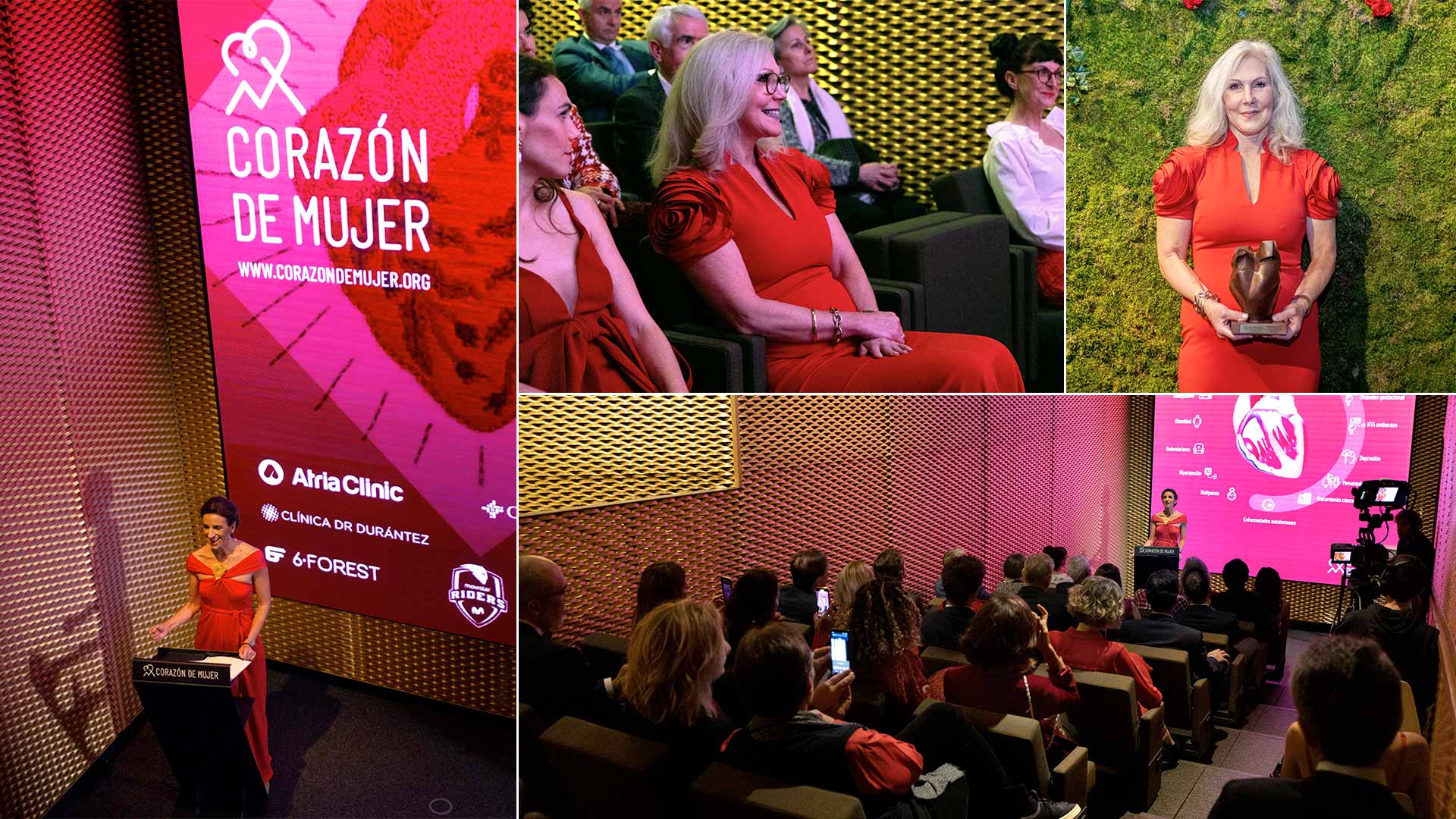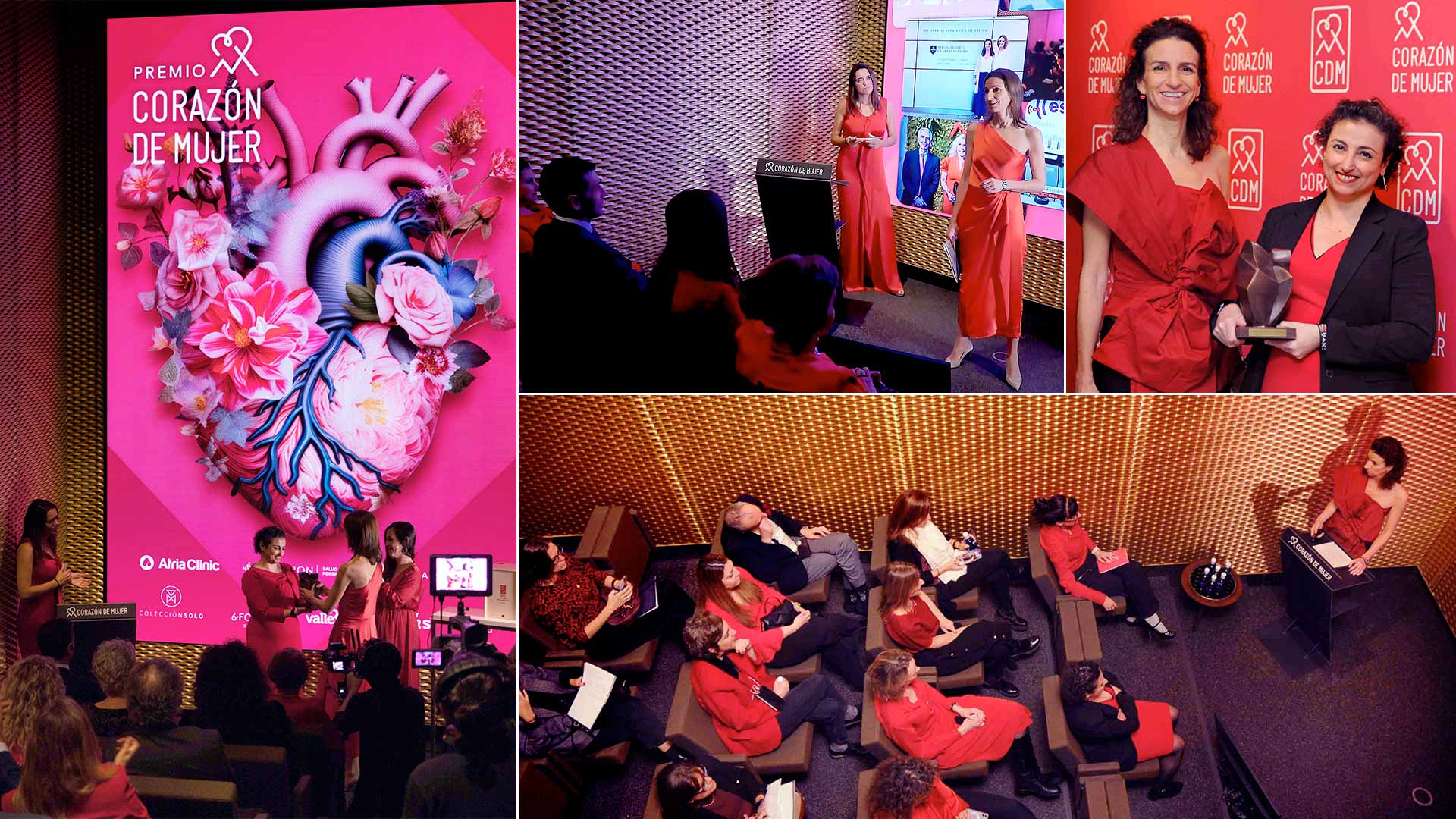Corazón de Mujer Award
The Corazón de Mujer movement presents an annual international award to recognize and highlight the efforts of individuals or institutions dedicated to combating cardiovascular disease in women in the areas of research, prevention and dissemination.
The award ceremony for the first two editions of the Women’s Heart Award took place in Espacio SOLO, a private contemporary art museum in the heart of Madrid, unique and exclusive both for the collection it houses and its architectural setting. The event brings together personalities from the health, financial, cultural and business sectors to give visibility to cardiovascular diseases in women.
The inaugural first award honored Dr. Malissa Wood, a highly respected American cardiologist specializing in women’s cardiovascular health. Dr. Wood has dedicated over 20 years to her work at Harvard University and Massachusetts General Hospital, where she co-directed the Corrigan Women’s Heart Health Program and held the Cathy E. Minehan Chair of Cardiovascular Disease in Women.

Dr. Wood has been a pivotal figure in advancing women’s heart health, both in clinical care and research. Her efforts have focused on understanding and addressing the unique cardiovascular needs of women, particularly those affected by social determinants of health. She has led significant studies, including the Happy Heart Trial, aimed at improving cardiovascular health in low-income, high-risk women, and played an instrumental role in the development of the Go Red for Women movement, which inspires Corazón de Mujer.
Professor Nabila Bouatia-Naji was the recipient of the second edition of the Corazón de Mujer Award. As the Director of Research and Team Leader at the Cardiovascular Research Center of Université Paris Cité, Dr. Bouatia-Naji is a prominent geneticist who focuses her work on the study of atypical vascular pathologies with high prevalence in women, primarily fibromuscular dysplasia and spontaneous coronary artery dissection.

Her research has significantly contributed to understanding the genetic foundations of various cardiovascular diseases prevalent in women, utilizing advanced techniques in genetic epidemiology, functional genomics, and high-throughput cell models derived from stem cells.
Furthermore, having personally overcome cultural, economic, and gender barriers, Nabila has become an active advocate for leadership opportunities for women in health sciences, promoting diversity and inclusion within the field of cutting-edge medical research.